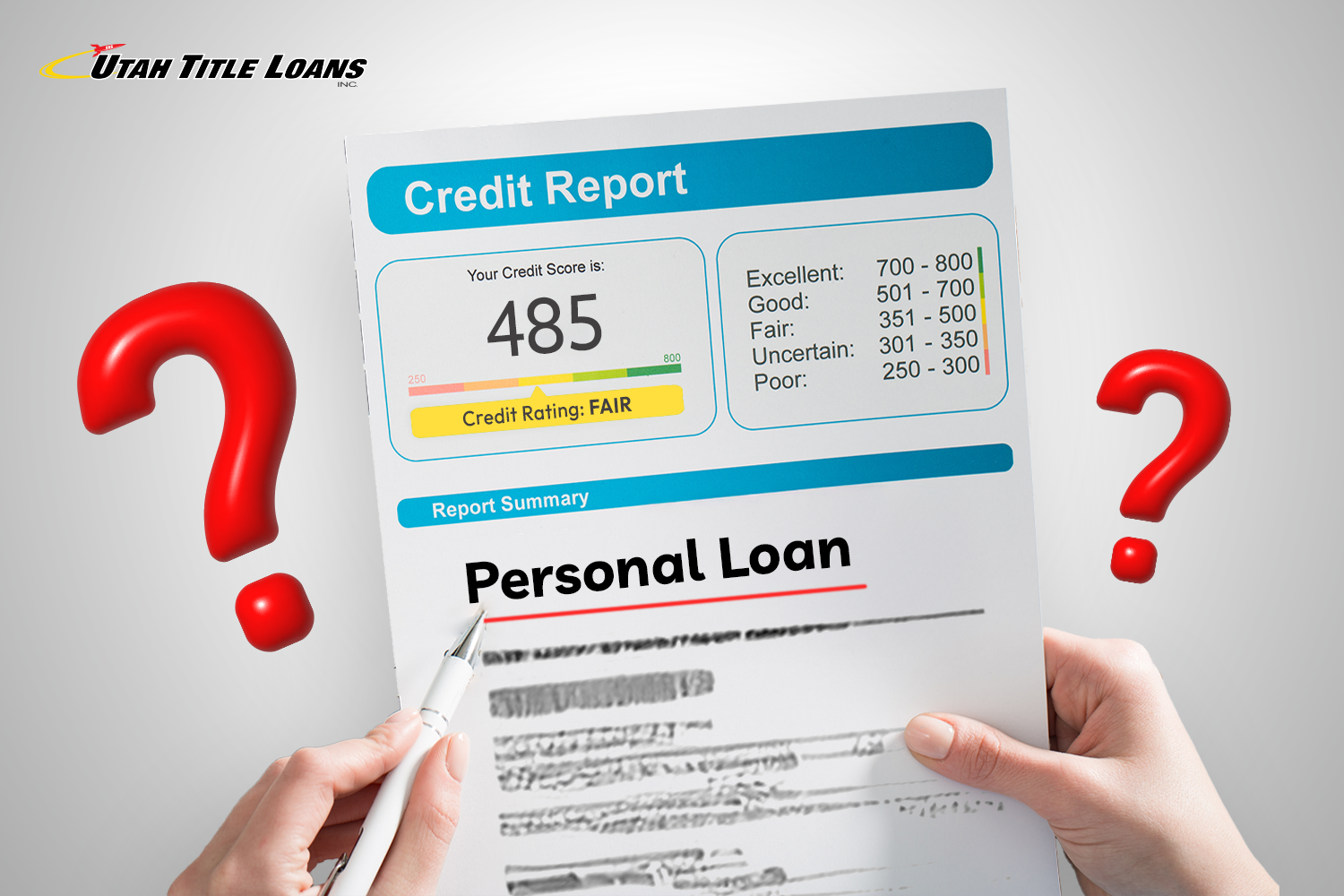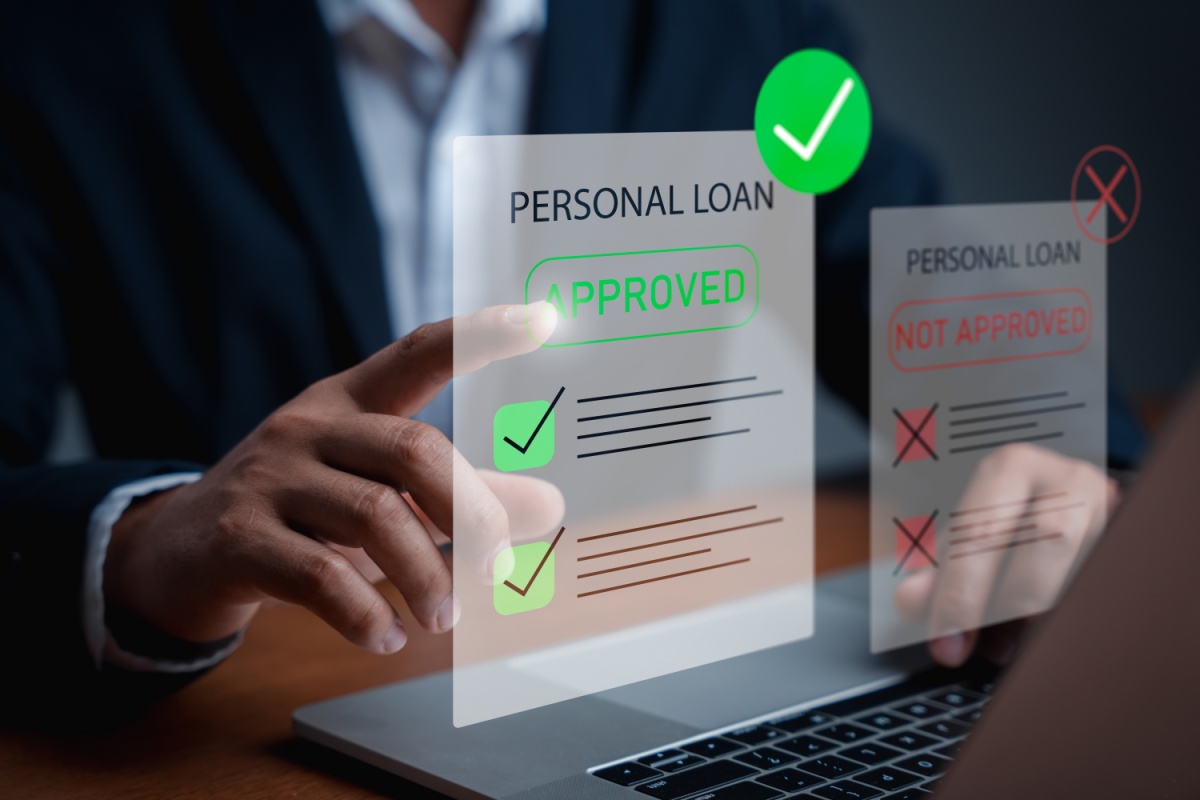
How A Personal Loan Affects Your Credit Score
Worried that taking a personal loan might hurt your credit score? The truth is, it can help or hurt—depending on how you manage it. Here’s what to know before you apply.
In this guide from Utah Title Loans, Inc., we will explain everything you need to know about how a personal loan can affect your credit score both positively and negatively, helping you decide if this type of loan is right for you. We will also clarify how you can obtain title loans, payday loans, and signature installment loans without impacting your credit score.
3 Ways A Personal Loan Can Positively Affect Your Credit Score
A personal loan is a type of loan you can get from a banking institution or credit union to receive a lump sum of cash. This loan is normally unsecured, meaning you don’t need to provide collateral.
You will repay the loan through regular payments. Personal loan lenders have a minimum credit score that you must have to get approved. These loans are reported to the three major credit bureaus, so how you handle them can affect your credit.
The following are three ways a personal loan can positively affect your credit score:
1. Build Credit With On-Time Payments
Making full, timely payments is one of the most reliable ways to build a strong credit history.
Your credit report shows lenders how well you manage debt, much like a report card for your finances. You want to show you're responsible, organized, and have plenty of experience. To do that, you need to repay personal loans on time to establish a positive payment history.
Sensibly managing your personal loan can make a huge difference to your credit report, improving your ability to borrow more money (and acquire different types of loans) in the future.

2. Create A Positive Credit Mix
When credit agencies calculate your credit score, one factor they look into is your credit mix. This refers to whether you have a good mix of different types of credit accounts.
You may assume that having only one or two credit accounts open at a time is better because you can manage them more easily. However, that is not the case. While a positive credit mix can vary from person to person, it may include a combination of personal loans, credit cards, and a mortgage.
If you can manage different types of credit responsibly, it demonstrates that you can make timely payments, even with various accounts open. However, you must be able to handle these credit accounts effectively to benefit from a diverse credit mix. Having multiple credit accounts open at once means you’ll have several monthly payments to manage.
3. Reduces Your Credit Utilization Ratio
Healthy credit scores require that your credit utilization ratio stays below 30%. For example, if you have a $10,000 credit limit, you should only use $3,000 to avoid exceeding the preferred 30% mark.
If you rely on credit cards, maintaining a low ratio can be challenging. However, personal loans do not factor into the calculation, so using them instead of your credit cards can help keep your credit utilization ratio low.
Does Taking Out A Personal Loan Hurt Your Credit?
Despite the positives we've just discussed, a personal loan can harm your credit score if you aren't careful. Managing your loan responsibly is essential to avoid drops in your credit score, especially by making timely payments.
Here are a few ways in which it can decrease your credit rating:
1. Hard Searches
When you apply for a credit type, the lender conducts a credit check to evaluate your history. This check leaves a hard search on your report. Other lenders can see this, and thus, it negatively impacts your score.
The severity of the impact varies on a case-by-case basis. However, it will only stay on your credit report for a few months.
2. Excessive Searches
Applying for multiple lines of credit in a short space of time can have a bigger impact on your credit score than one hard search. Why? Each application results in another hard check!
Potential lenders may think you are desperate to borrow when they can see various applications on your report. As such, they might be reluctant to approve your application.
Luckily, you can avoid this issue by spreading your applications apart. That way, your score will have time to recover between each one.
3. Increase Your Debt
The more debt you have, the more difficult it may be to stay on time with your repayments. If you take out a personal loan to cover higher-interest debts, make sure you can repay the new debt in full and on time.
Only borrow what you can reasonably repay. High-interest loans can become difficult to manage if:
- You take on more debt than needed
- Interest rates raise monthly payments above your budget
- You don’t plan repayment in advance
4. Missing Payments
Nothing affects your score more than missing payments. As soon as you miss one, the lender notifies the credit agencies, and it will appear on your report for other lenders to see.
Lenders typically have a time limit to define when payments are late, so it's important to find out how much grace your lender will provide. If you pay before the cutoff date, you will avoid the credit agencies finding out. Most lenders will register a payment as late 30 days after the due date.
You should do everything in your power to avoid missing payments, due to the severe negative impact it can have on your score by:
- Borrowing smaller loan amounts for manageable repayment
- Budgeting appropriately
- Jotting repayment times in your calendar
- Establishing automatic payments
Can You Get A Personal Loan If You Have A Bad Credit Score?
You need to have a good credit score to get approved for a personal loan at a bank or credit union. If you need to borrow emergency cash with bad credit, Utah Title Loans, Inc. can help. A high credit score is not a requirement for any of our loans. You can get approved for Utah loans regardless of your credit score, as long as you meet our other basic requirements.
We offer three types of loans you can get approved for with bad credit:
- Title loans — As long as you own your vehicle outright, you can get a title loan from us by using your lien-free vehicle title as collateral. You can borrow between $300 and $15,000. We use the value of your vehicle to establish how much money you can qualify for. The more your car is worth, the more you can borrow. To qualify for a title loan, the vehicle must be fully paid off, and you will need to visit a store location to complete the process.
- Payday loans — Unlike title loans, you don't need to own a vehicle to qualify. However, they are only for small dollar amounts (between $100 and $500, specifically). To get a payday loan, you need to prove your income with your most recent pay stub. Borrowers usually repay this loan using their next paycheck.
- Signature installment loans — This loan lets you borrow money as long as you agree to repay it in fixed installment payments. They function similarly to personal loans. You can borrow up to $1,500. While we will do a soft credit check, you can still borrow cash with bad credit through signature installment loans.
Regardless of the particular loan you choose, our loans let you borrow money fast. As long as you meet our requirements, you can borrow emergency cash as soon as the same day. While you can start your application online, all loans must be completed in person at one of our Utah stores. Apply online and get approved at one of our Utah store locations today!

Borrow Money Fast In Utah – Receive One Of Our Emergency Loans Today!
Need emergency cash but have bad credit? Utah Title Loans, Inc. can help with our fast-approval loans that let you borrow with poor credit or no credit. Borrow urgent funds in less than 30 minutes through our speedy, efficient process.
Ready to get started? Fill out our online contact form and hear from one of our loan representatives soon over the phone. Apply for our Utah loans today!
Note: The content provided in this article is only for informational purposes, and you should contact your financial advisor about your specific financial situation.